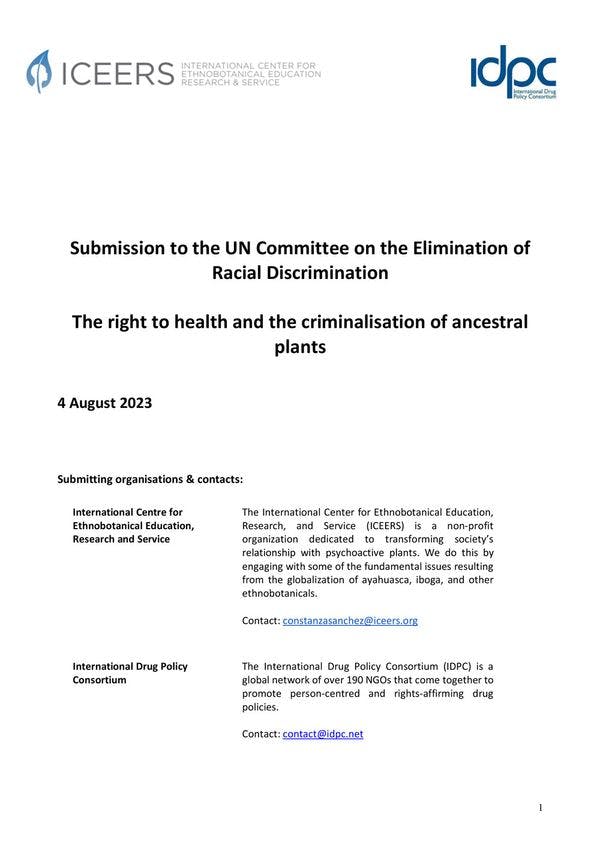Flickr Shawn Harquail, CC BY-NC 2.0
Le droit à la santé et la criminalisation des plantes ancestrales – Contribution au Comité CERD
L'IDPC et l'ICEERS soutiennent que le droit des peuples autochtones à cultiver, utiliser, posséder, soigner et voyager avec leurs plantes ancestrales devrait être inscrit dans le cadre d'un droit à la santé exempt de discrimination raciale. Pour en savoir plus, en anglais, veuillez lire les informations ci-dessous.
International human rights standards recognise the right of Indigenous peoples to their traditional medicines and health practices, and its centrality in the context of the right to health.
However, for decades drug control policies have sought to ban the cultivation, possession, and use of plants with psychoactive effects that are essential to Indigenous medicine and health. As a result, in certain countries people who grow, use, heal or travel with ancestral plants are still criminalised, and traditional medicine is endangered.
In this submission to the UN Committee on the Elimination of Racial Discrimination, ICEERS and IDPC provide feedback on the Committee's Draft General Recommendation on racial discrimination in the enjoyment of the right to health, and argue that the General Recommendations should enshrine the right of Indigenous Peoples to grow, use, possess, heal, and travel with their ancestral plants, as an essential part of a right to health free from racial discrimination.
